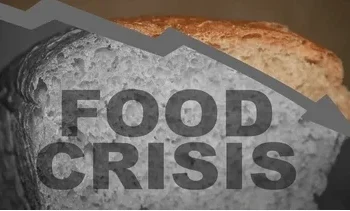Governors from Nigeria’s six North‑East states have issued an urgent call to action following warnings of an impending food crisis and flood disaster. At the conclusion of the North‑East Governors’ Forum (NEGF) 12th meeting in Jalingo, the sub‑region’s leaders emphasized the need for immediate intervention to protect millions of livelihoods.
The governors cited rapidly escalating prices of fertilizers, seeds, and chemicals as a major barrier to agricultural productivity. Without subsidies and support, farmers may struggle to sustain planting and harvesting cycles, putting 2026 food security at significant risk. To forestall this, the governors demanded increased subsidies for agricultural inputs and robust preparations for dry‑season farming—things they say could help stabilize output and ensure continued production.
Rising concerns over extreme weather patterns and impending floods were also prominent on the agenda. The governors referenced climate forecasts predicting widespread flooding that threatens communities along riverbanks. They urged the Federal Government and the North‑East Development Commission (NEDC) to rebuild critical infrastructure, especially bridges, which are essential for transportation and emergency response.
Additionally, the forum called for a massive sensitization campaign to inform settlers about flood risks and encourage relocation from vulnerable flood plains.
In parallel efforts to boost economic resilience, governors committed to addressing energy poverty by commissioning a sub-regional power master plan, with emphasis on solar energy as a cost-effective alternative. They also announced plans to host the North‑East Trade Fair in Maiduguri in December 2025, in partnership with NECCIMA, aiming to stimulate local commerce, agriculture, and industrial collaboration.
Though the region has seen progress in its fight against insurgency, the governors acknowledged that the humanitarian and infrastructural challenges remain daunting, requiring cohesive and sustained regional responses. Their collective stance underscores a crucial turning point: a move from crisis management to strategic planning that prioritizes local agriculture, climate resilience, and economic redevelopment.
The North‑East Governors’ decisive steps—advocating for farming subsidies, revamping infrastructure, and fostering regional trade—reflect their resolve to pull the sub-region back from the brink. As communities brace for climate shocks and food shortages, the efficacy of these plans will determine the future stability and livelihoods of millions in the North‑East.




















